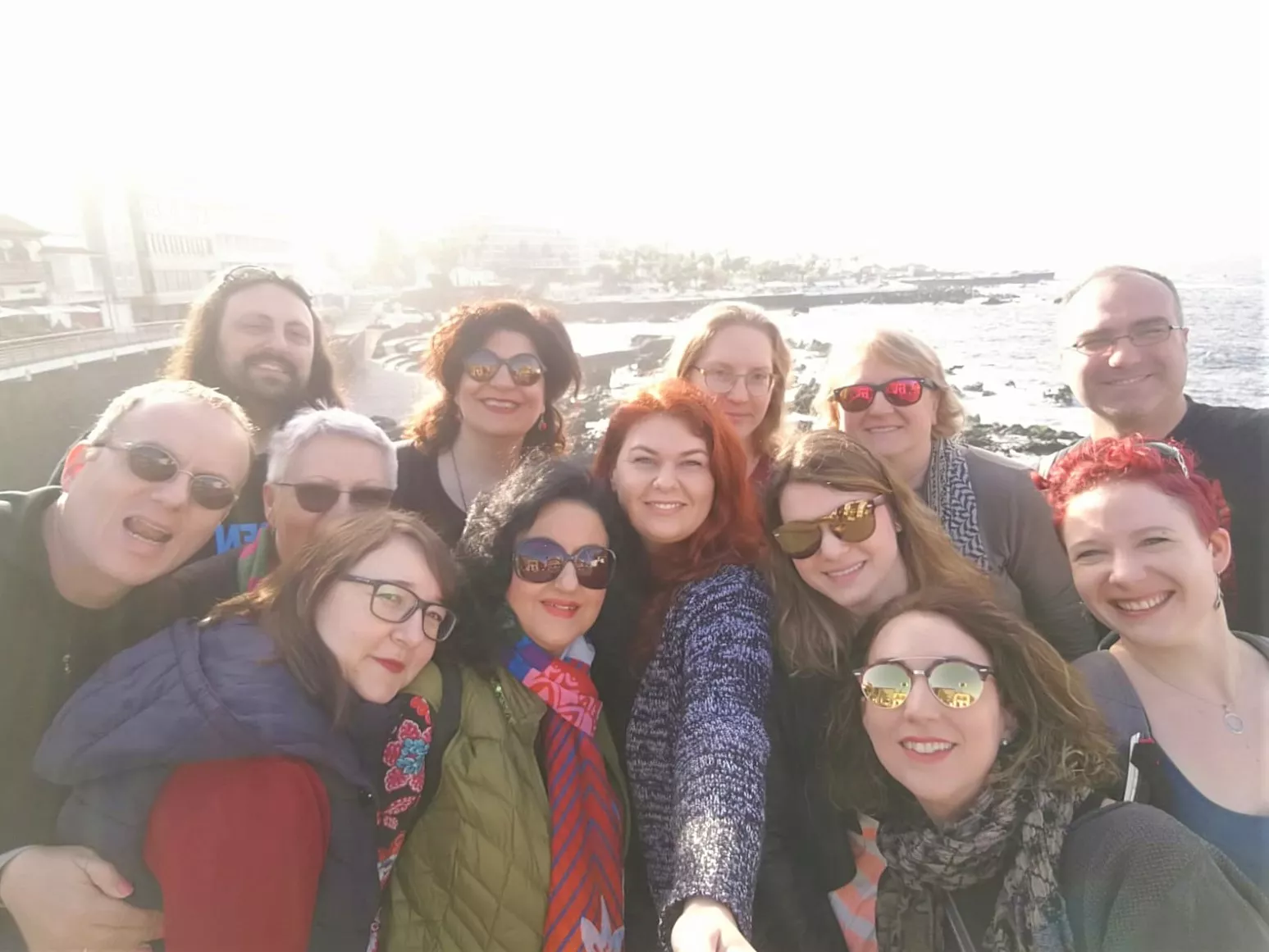Soft skills, solid competence


A small team is the most important unit in working life. One needs many kinds of skills when working with different colleagues towards a common goal. Communications must be smooth. Everyone must be able to manage their own performance and some must also manage others. What kinds of skills are needed in this and how can one develop them?
In March, I participated in the “Soft skills for teachers, trainers and education staff” course organised by the Italian organisation IFOM in Puerto de la Cruz, Tenerife. The course focused on soft skills, including non-verbal communications, convincing expression, public speaking, leadership and time management – everything that makes teamwork run smoothly.
Soft skills are very strongly based on language, language use, choice of words and re-wording, whether we are dealing with clear expression, negotiative leadership or creating to-do lists, for instance. Of course, non-verbal language, postures and tone of voice are also important factors in interaction, but the key factor still is what is said and how. So, how is it possible to learn things like this when using a language other than your mother tongue?
In my opinion, the most important lesson learnt from the course was associated with the improvement of linguistic fluency. It was fortunate that all participants spoke good English. I found it very important that everyone could communicate on a relatively equal footing with each other. Furthermore, learning in a foreign language opened up new perspectives on the topic: The individuals’ differences in soft skills may be associated with language skills and the personal sense of language. The skill of understanding nuances can and should be developed. Shortcomings in language skills may be visible in how people express their soft skills.
During the course days, we used methods familiar from non-formal learning, especially group work in which we had a chance to practise the newly learnt interaction skills with participants from different countries. The best new method for me was “morning wrap-up”, where, in small groups, we collected the previous day’s main points on a sheet of flip chart paper and then presented these “memoirs” to others. This seemed to support learning very well.
Another useful model was the instant speech model. It consisted of three parts: an argument, three grounds for it and the repetition of the argument. This compact model can be used in meetings; for instance, when the microphone is coming your way, there is just enough time to prepare this compact statement.
The course approached soft skills on rather an elementary level. I think that the course would be best suited for a person who needs to learn the basics of soft skills; for instance, a person who has just entered working life or a newcomer in association activities. In this sense, the material that I received from the course is very useful when I plan training on this topic.
Our teacher Giulia seemed to be an expert and could have adapted the content even more according to the participants’ skill level as it seemed that the group was already quite competent. It would also have been a good idea to diversify the groups because there were two simultaneous courses (one of them was intended to focus on public speaking skills).
The best thing about the course was our brilliant group of participants from Greece, Croatia and Poland. In addition, I was pleasantly surprised to see another participant from Finland, from another study centre. Most of us worked in various educational institutions with adults or young people. We hit it off very quickly and, after the course lessons, we spent most of our free time together exploring the surroundings. So, we could use interaction skills from dawn till dusk!
My own expectations were diverse: I wanted to make the best use of the course content and I expected that I would get to know at least a few interesting people working in the education and training sector. In addition, I expected that by participating in the course I would gain a better understanding of how an international course is organised. All these goals were met very well. The course content was less in-depth than expected, but the exchange of information with European colleagues made up for the shortcomings many times over. Participating in the course was a unique opportunity to learn more about the everyday life of trainers, teachers and educational institutions in places that I probably would not have got to know otherwise.
Eeva Jeronen
Sivis Study Centre
This article is part of a series of articles about learning experiences in the field of adult education in European context. Our ERASMUS+ KA1 project is called “European Educational Know-how Supporting Civil Society”.





Soft skills, solid competence